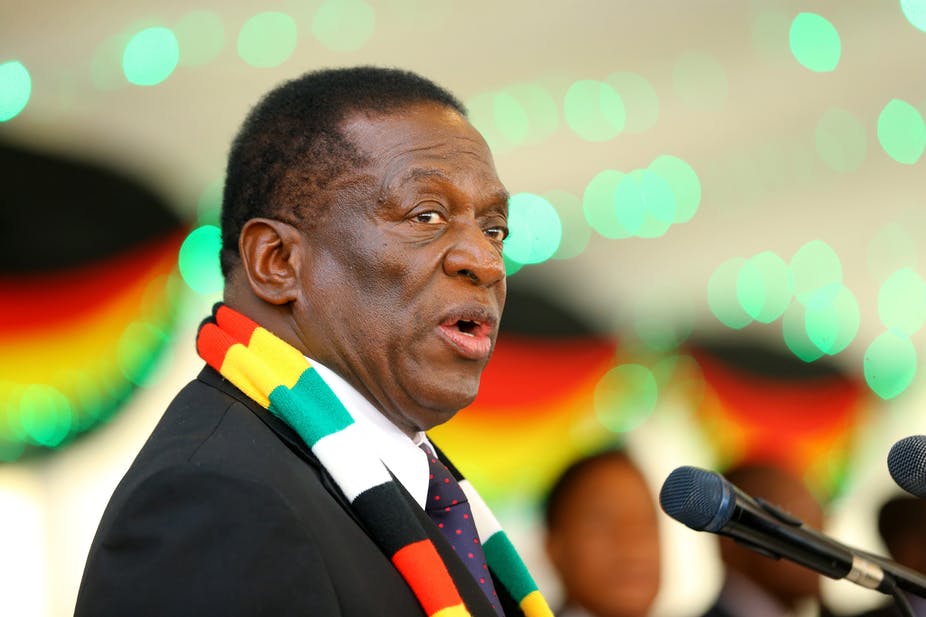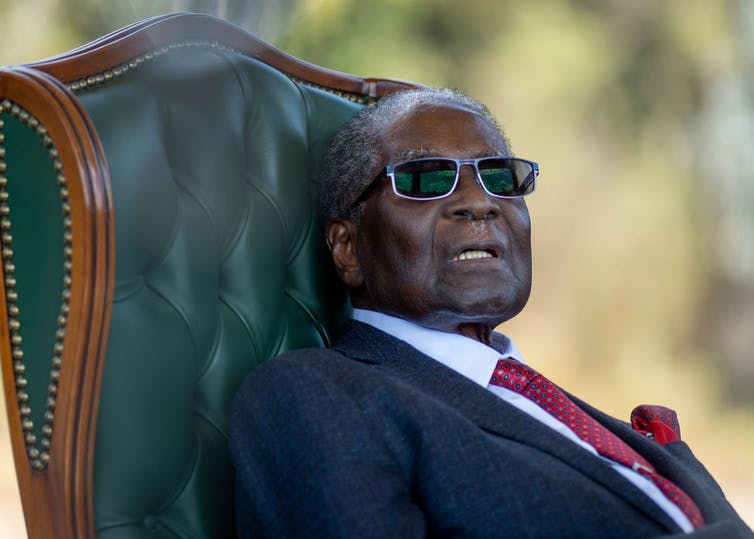PBS: Escaping Eritrea … [Read More...] about ካብ ውሽጢ ቤት ማእሰርታት ኤርትራ
Zimbabwe: troubled nation now faces tough foreign policy choices
Stephen Chan | October 3, 2018 The Conversation

The toxic presidency of Mugabe may be over, but the new Zimbabwean government of Emmerson Mnangagwa must quickly make some hard foreign policy decisions if it is to change the country’s fortunes. For so far no major foreign power has undertaken to relieve in any significant way the country’s economic distress. Although election observer reports have been guardedly and conditionally – almost grudgingly – accepting of the election results, the question marks raised and, particularly, the totally unnecessary violence unleashed against protesters in the wake of the election have made all governments shy of offering full endorsement of the regime.
What this has meant is that foreign investor confidence, while not discouraged entirely, is very slow to assume the kind of mass and speed of movement the economy needs. The IMF has spoken of some negotiated relief, but only under a “reform package”. The Chinese also feel that they do not want to put good money after bad. Previous loans have not been repaid and, although rumours of seizing Zimbabwean institutional assets as collateral have been swiftly denied, it is no secret that the Chinese are not best pleased with Zimbabwe’s approach to fiscal responsibility.
Chinese influence
The Zimbabweans seem not to have noticed that, increasingly, Chinese liquidity is made available through Chinese banks. They may or may not be state-owned – but it is not the state that makes a benefaction; it is a bank that makes a loan. And banks stay in business by realising the returns from a loan. As it is, liquidity has been either misused, misappropriated, or used simply to balance books that otherwise would be parlously unbalanced.
Although the Americans have lowered the tone of their criticisms of the government, the softly-softly approach cannot hide the strict conditionality they seek. This resides in guarantees of future electoral conduct, but also essentially the desecuritisation of the ZANU-PF machine. In a word, the problem is Constantino Chiwenga, the former defence forces chief, now vice-president, who has a strong influence within the military – but, no matter what the Americans want, he is going nowhere fast, and he will not sacrifice his deep influence within the military.
The Europeans have lifted the huge majority of their sanctions, but the outgoing European representative has been critical of both the election and the violence that followed. This leaves the British as a key player.
Catriona Laing, the British ambassador to Zimbabwe, is being promoted to the High Commissionership in Nigeria, and it is no secret she laid much of her prestige and credibility on the line in seeking to persuade Whitehall that Mnangagwa was a credible figure. This of course should be seen in the context that Grace Mugabe certainly was not. But it signals nevertheless that the days of British antipathy towards a ZANU-PF government have gone.
Laing’s successor as the new British ambassador will be, not a diplomatic figure with foreign office experience, but someone with huge experience in development assistance. Melanie Robinson will not be in the mould of Laing, nor of her predecessors, Deborah Bronnert and Mark Canning. She will need to be dealt with differently by the Zimbabwean government and the ZANU-PF apparatus. Whereas her predecessors were often perceived as political actors, Robinson is purely a development technocrat.

But, despite the obviously signalled change in emphasis, the British now have no money left to give. Brexit will compound that. All the British can do is throw their weight behind the IMF and encourage corporations to invest in Zimbabwe – but the British weight cannot, in itself, counteract US and EU reluctance to give a full green light to investment in Zimbabwe.
Russia would like to make some inroads in Zimbabwe, but has earmarked no sizeable funds for doing so.
All eyes on reform
In short, almost everyone is looking towards reform. What happens domestically will impact the success or otherwise of foreign policy. As for foreign policy pure and proper, Zimbabwe has not been properly represented by top-flight ambassadors for some time. There had been only an acting Zimbabwean ambassador in the UK for almost three years, from 2015-18, and agreement to appoint a substantive ambassador was long delayed because the nominee, Ray Nahulukula, had received land seized from a white farmer. The finally agreed ambassador is Christian Katsande. The minister of lands, Perence Shiri, has now begun talking of some kind of compensation for white farmers who had lands seized, but no plans can be laid because there are no funds for compensation of any sort.
So it all comes down to money. The Mugabe years from 1997, when the economy began to tank, a process that was hurled into accelerated overdrive with the farm seizures in 2000, were years of mismanagement and accumulation without the reinvestment and circulation of capital. It was the era of the oligarchs. A lot of the funds that wound up at their disposal was used for consumption. If now these “fat cats” are somehow involved in foreign policy negotiations, particularly to do with economic and financial diplomacy, there will be no credibility on the Zimbabwean side.
I conclude with a story of one of my visits to Beijing some years ago. Chinese officials showed me their figures on the Zimbabwean economy. I looked at them and said, “So you know it’s a basket case?” “Yes,” was the reply. “But we continue to show solidarity.” But it is clear those days have now faded into memory. Fine words will now not be enough for diplomacy. Everyone wants actions.
Stephen Chan is Professor of World Politics, SOAS, University of London.
